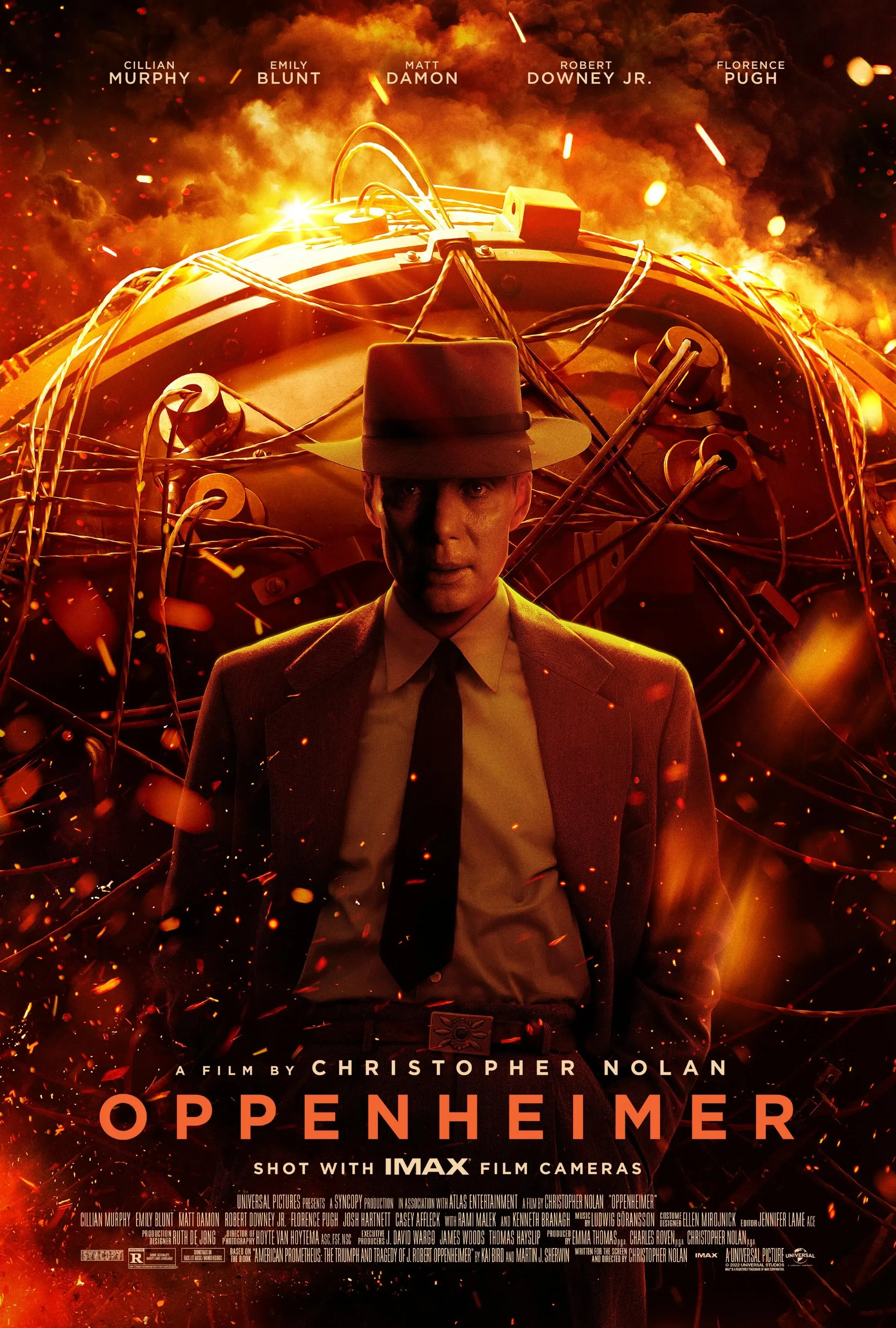Oppenheimer (2023)

Oppenheimer is a sweeping biographical drama that follows J. Robert Oppenheimer from his precocious university days through his leadership of the Manhattan Project and the fraught aftermath of World War II. The film traces his scientific brilliance, moral conflicts, and the political fallout — including the public and private consequences of having helped create the atomic bomb — culminating in the government hearings that challenged his reputation and loyalties. Watching the movie you’ll experience an intense, immersive portrait of a complicated man and a pivotal moment in history. Expect taut, often cerebral drama intercut with moments of raw emotion: quiet, intimate scenes of personal doubt and relationship strain alongside large-scale, visceral set pieces (notably the Trinity test) that convey the terrifying beauty of the bomb’s power. The storytelling is cinematic and deliberate, using nonlinear structure and strong production design to evoke the period and mindset of the era. Performances are central: the lead portrayal is layered and inward, supported by a powerful ensemble that brings the political and ethical stakes to life. Visually and sonically the film is striking — spare, precise cinematography and a haunting score heighten the moral weight and tension. The pace can be demanding and meditative, asking viewers to wrestle with questions of responsibility, ambition, and the human costs of scientific advancement. Overall, Oppenheimer is both a historical chronicle and a moral drama: it’s thought-provoking, emotionally affecting, and visually memorable. It’s best approached ready to engage with complex ideas and difficult questions about power, science, and consequence.
Actors: Cillian Murphy, Emily Blunt, Matt Damon
Director: Christopher Nolan
Genres: Biography, Drama, History
90
/100
8.3
/10
![]() 8.7
/10
8.7
/10